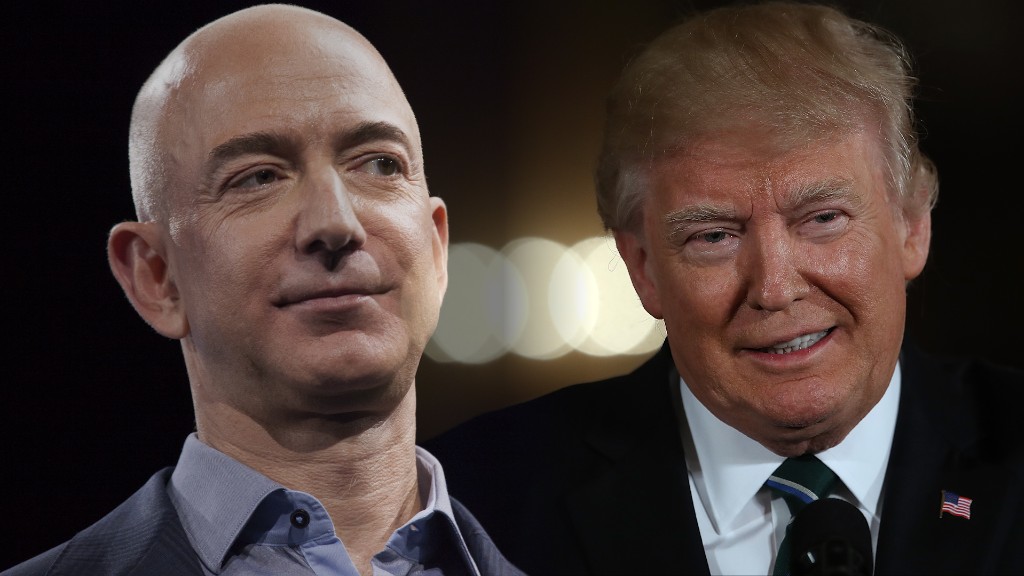
Amazon, Apple, Ford and Goldman Sachs are among America's largest employers and most iconic brands. They have something else in common: They've all been attacked by the CEO president.
President Donald Trump styles himself a business-friendly leader. But just this month his administration imposed tariffs on steel, aluminum and Chinese goods. It went to trial to block a vertical merger on antitrust grounds. And this week, Trump attacked Amazon (AMZN) — a major driver of the stock market rally and the jobs market.
The president has targeted many other companies and industries. He repeatedly accused Ford (F)of moving jobs from Michigan to Mexico, claims that Ford has said were incorrect. And last summer, Trump lashed out at Ken Frazier and the pharmaceutical industry's "ripoff drug prices" after the Merck (MRK)CEO quit Trump's manufacturing council.
Trump's attacks on major American companies can hardly be considered business-friendly. Nor are they helpful to the stock market, which Trump himself views as a barometer of his success.
The president's anti-business actions undermine his pro-business achievements, such as the huge corporate tax cut, a push to rip up regulations and booming small business optimism.
"There is this implicit paradox because he has been waving the flag as the champion of American enterprise," said Jeffrey Sonnenfeld, a professor at the Yale School of Management. "It's a very confused portrait."
Related: Trump vs. Amazon: Let's set the record straight
An Axios report on Wednesday that described a president plotting to "go after Amazon" wiped $32 billion from the company's market value. Rather than deny the report, Trump doubled down with a pair of misleading tweets about Amazon's tax and shipping tactics.
Never mind that Amazon accounts for about 12% of the Trump rally. Or that it's responsible for about 5% of last year's hiring boom. Plus, as CNBC's Jim Cramer pointed out on Twitter, Amazon "lowers prices for consumers!"
Yet Trump is a frequent critic of Amazon CEO Jeff Bezos, who also owns The Washington Post. Amazon does not own the newspaper, though Trump misleadingly calls it the "Amazon Washington Post."
"Our sense is that the Washington Post's coverage is the driving force behind his antipathy," Isaac Boltansky, senior policy analyst at Compass Point Research and Trading, wrote in a report.
In 2016, Trump told Fox News that he believes Bezos is using the Post as a "tool for political power against me and against other people."
The White House has denied that's why Trump is taking on Amazon. Raj Shah, Trump's deputy press secretary, told Fox News on Thursday "this is really about policy," not Bezos.
Meanwhile, Trump's Justice Department sued to block the AT&T-Time Warner megadeal. (Time Warner owns CNN.) The administration has taken the rare step of trying to block a "vertical merger," one between two companies in different lines of business. The federal government hasn't fought a vertical merger in court to its conclusion since 1979.
Related: Amazon is responsible for a huge chunk of the Trump rally
For Trump, what seems to matter most has been the verdict the stock market delivers.
The results were very positive last year as stocks boomed thanks to Trump's tax cuts.
More recently, Trump's policies — specifically his trade crackdown — drove repeated sell-offs in March. The Dow ended with its worst quarter since 2015.
That means even Wall Street is being forced to confront the anti-business portions of the Trump agenda.
— CNNMoney's Chris Isidore and David Goldman contributed to this story.


